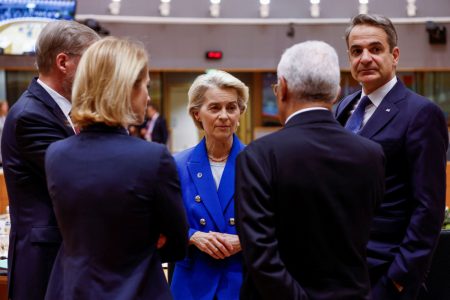Ankara is launching on 27 February with a military exercise named “Blue Motherland” (Mavi Vatan) which has been described by Turkish media as a “war rehearsal” and which aims to send a clear message to Greece, Cyprus, Israel, and whoever else disputes Ankara’s declared interests in the Eastern Mediterranean.
The manoeuvres have been touted as Turkey’s biggest ever, covering a terrain including the Aegean, the Mediterranean, and the Black Sea. They will run to 8 March.
Ankara will send frigates and corvettes to the Aegean and the Mediterranean, where Turkey wants to take a stand against Cyprus’ hydrocarbons exploration programme in its own Exclusive Economic Zone.
Meanwhile Turkey is about to start its own illegal drilling in the EEZ of the Republic of Cyprus.
With Ankara internationally isolated and with its ties with the US having reached rock bottom – after Washington froze the delivery to Turkey of F-35 warplanes due to Ankara’s insistence on procuring Russia’s S-400 missile system – Turkey has resorted to the tried and tested tactic of flexing military muscle.
For the sea, air, and land manouevres Ankara has issued a NAVTEX tying up areas of the Southeastern Aegean and the Southeastern Mediterranean, including the continental shelf of the Greek island of Kastelorizo, the area southeast of Rhodes, and the EEZ of the Republic of Cyprus.
Turkey has tied up a total area of 462,000-square metres in the Aegean, Mediterranean and Black Seas for the expansive exercises.
Turkey’s state-run Anadolu news agency touted the exercises as a huge “show of force” because aside from over 100 ships, also participating will be SAT and SAS commando units, land forces and the Turkish Coast Guard.
The Turkish daily Yeni Safak reported that the exercise is a means for “Turkey’s armed forces to bolster their sovereignty over 462 square kilometres of sea and will send a clear warning for those who are preparing maps for invasion”.
Ankara’s clearly stated objective is to co-administer with the Republic of Cyprus the latter’s huge hydrocarbons deposits and to control regional energy routes.
Turkey views maintaining its presence as a regional player, with a role on the energy chessboard, as being of vital importance. It seeks a role not as an extra but as a real player that can gain the greatest possible benefits.
The Greek side is convinced that Turkey’s aggressive actions in Cyprus’ EEZ and in the Aegean aim to establish de facto situations at the expense of the sovereign rights of both Cyprus and Greece.
Turkey’s ‘strategic targets’
Turkish Foreign Minister Mevlut Cavusoglu last week stated clearly that Cyprus, the Eastern Mediterranean, and the Aegean are for Ankara “strategic targets and national issues”.
The fact that Cyprus’ EEZ attracts the huge interest of energy companies due to its significant deposits and the prospect of the construction of a LNG terminal on the island increases Turkey’s aggressiveness and hostility in demanding a piece of the pie.
The US, France, Israel, Italy, and Qatar are acting in Cyprus’ EEZ and new moves are being planned in the effort to settle the Cyprus problem.
The Greek Foreign Ministry is closely monitoring the situation in the Aegean and the Eastern Mediterranean and the Hellenic Navy has been placed in a constant state of readiness to respond to any challenge from Ankara.
Israel, the US, and France are all monitoring Ankara’s moves in the region as well.
Foreign diplomats – including US Ambassador to Athens Geoffrey Pyatt – have in the past expressed concerns over a prospective military “accident” due to the large concentration of firepower and heightened tensions in the region.


